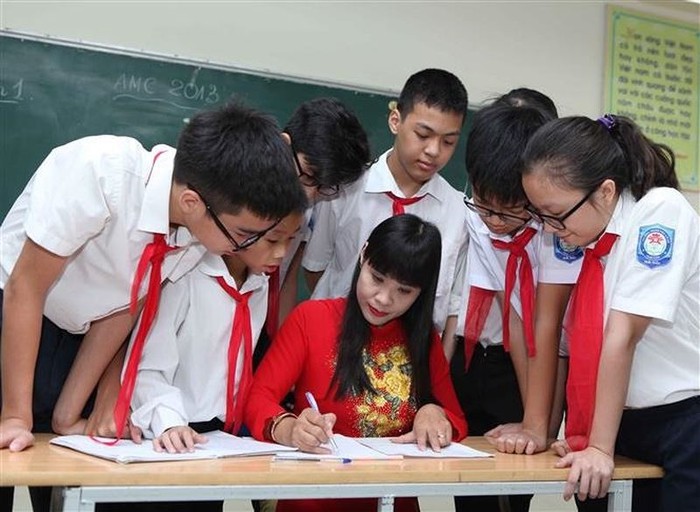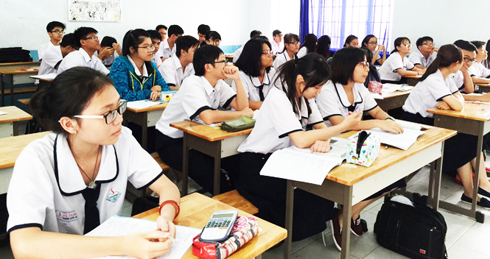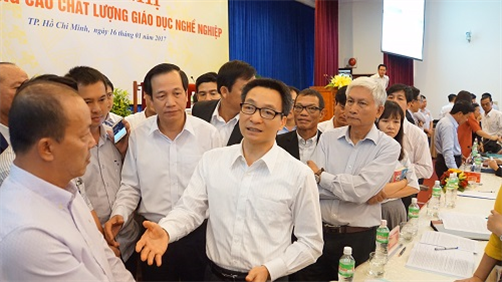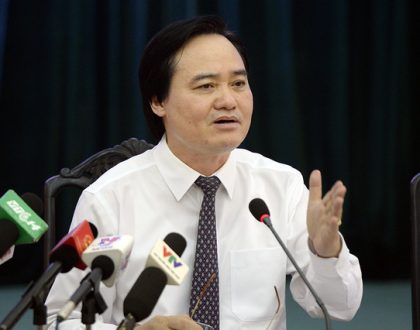According to the plan, soon, numerous preschool, primary, and secondary school teachers will have to undergo professional development to meet the educational standards stipulated in the Education Law 2019. Before participating in the professional development process, teachers at all levels need to pay attention to the following 6 points.

6 Things Teachers Need to Know Before Raising Training Standards - Illustration
Training Standards for Teachers at All Levels from July 1, 2020
According to the provisions of Article 72 Education Law 2019, from July 1, 2020, the training standards for preschool, primary, and lower secondary teachers have been raised compared to the Education Law 2005. Specifically:
- For preschool teachers: Must have a college degree in pedagogy or higher. (The current regulation only requires a pedagogical intermediate diploma).
- For primary, lower secondary, and upper secondary teachers: Must have a bachelor’s degree in a teacher training program or higher. (The current regulation requires a pedagogical intermediate diploma for primary school teachers; a pedagogical college diploma or a college diploma and a certificate in pedagogical training for lower secondary teachers).
If the subject does not have enough teachers with a bachelor’s degree in a teacher training program, they must have a bachelor’s degree in a relevant major and a certificate in pedagogical training.
04 Categories Required to Raise Training Standards in Education
Decree 71/2020/ND-CP which outlines the timeline for raising training standards for preschool, primary, and lower secondary teachers, was issued on June 30, 2020. It specifies four categories that must raise their standards, specifically including:
- Preschool teachers without a pedagogical college degree or higher as of July 1, 2020, who still have 7 years (84 months) until retirement age.
- Primary school teachers without a bachelor’s degree in a primary teacher training program or without a bachelor’s degree in a relevant major and a certificate in pedagogical training as of July 1, 2020, who still have 8 years (96 months) until retirement age for those with an intermediate diploma.
- Primary school teachers without a bachelor’s degree in a primary teacher training program or without a bachelor’s degree in a relevant major and a certificate in pedagogical training as of July 1, 2020, who still have 7 years (84 months) until retirement age for those with a college diploma.
- Lower secondary school teachers without a bachelor’s degree in a teacher training program or without a bachelor’s degree in a relevant major and a certificate in pedagogical training as of July 1, 2020, who still have 7 years (84 months) until retirement age.
Anticipated Timeline for Raising Standards for Teachers at All Levels
According to Decree 71/2020/ND-CP, the general timeline for raising standards is from July 1, 2020, to December 31, 2030, with specific timelines and targets for each category as follows:
- For preschool teachers, the timeline is implemented in two phases:
+ Phase 1: From July 1, 2020, to December 31, 2025, ensuring at least 60% of preschool teachers are being trained or have completed the training program and have been awarded a pedagogical college diploma;
+ Phase 2: From January 1, 2026, to December 31, 2030, implementing the remaining teachers to ensure 100% of preschool teachers complete the training program and are awarded a pedagogical college diploma.
- For primary school teachers, the timeline is implemented in two phases:
+ Phase 1: From July 1, 2020, to December 31, 2025, ensuring at least 50% of primary teachers are being trained or have completed the training program and have been awarded a bachelor’s degree;
+ Phase 2: From January 1, 2026, to December 31, 2030, implementing the remaining teachers to ensure 100% of primary teachers complete the training program and are awarded a bachelor’s degree.
- For lower secondary school teachers, the timeline is implemented in two phases:
+ Phase 1: From July 1, 2020, to December 31, 2025, ensuring at least 60% of lower secondary teachers are being trained or have completed the training program and have been awarded a bachelor’s degree;
+ Phase 2: From January 1, 2026, to December 31, 2030, implementing the remaining teachers to ensure 100% of lower secondary teachers complete the training program and are awarded a bachelor’s degree.
Thus, according to this timeline, from July 1, 2020, to December 31, 2025, 60% of preschool and lower secondary teachers and 50% of primary teachers will reach the new standard, and from January 1, 2026, to December 31, 2030, 100% of preschool, primary, and lower secondary teachers will reach the new standard according to the Education Law 2019.
Teachers Undergoing Training Upgrade Will Receive Tuition Support, 100% Salary, and Policies, Allowances
According to Decree 71/2020/ND-CP, teachers assigned to raise their training standards have the following rights:
- Facilitated time management by the managing and employing agency; support for tuition fees (applied as per current legal regulations for pedagogical students);
- Training time counted as continuous service time;
- Entitled to 100% salary and policies, allowances as per legal regulations.
Teachers Undergoing Training Upgrade Must Commit to Teaching for at Least Twice the Training Time After Upgrading
In addition to stipulating the rights that teachers are entitled to when assigned to raise their training standards, Decree 71/2020/ND-CP also imposes some responsibilities on teachers:
- Comply with training rules, regulations, and training duration; be under the management of the training institution during training activities;
- Commit to serving at preschool or general education institutions for at least twice the training duration after completing the training program;
- During the training period, teachers must continue to perform their assigned duties when not participating in training activities;
- If teachers fail to complete the training program within the stipulated time, resulting in an extended training period, they must bear the additional training costs.
Thus, as per the above regulations, teachers assigned to raise their training standards must commit to serving at preschool or general education institutions for at least twice the training duration after completing the training program.
Teachers Undergoing Training Upgrade Must Compensate for Training Costs in 3 Cases
Specifically, according to Article 11 of Decree 71/2020/ND-CP, teachers assigned to training using the State budget or the managing and employing agency’s funds must compensate for training costs in the following cases:
- Voluntarily dropping out of training, quitting, or unilaterally terminating the labor contract during the training period;
- Not granted a graduation diploma by the training institution, except for cases with objective and unavoidable reasons confirmed by the competent authority;
- Completed and awarded a graduation diploma, but quit or unilaterally terminated the labor contract without serving the committed duration as stipulated in point b, clause 2, Article 10 of Decree 71/2020/ND-CP.
Thus, as per Decree 71/2020/ND-CP, teachers assigned to undergo training upgrade will be exempt from tuition fees. However, if they voluntarily drop out of training, quit, or unilaterally terminate the labor contract during the training period; are not awarded a graduation diploma, or completed the training but quit or unilaterally terminate the labor contract without serving the committed duration, they must compensate for the training costs.
Nguyen Trinh
 Article table of contents
Article table of contents








